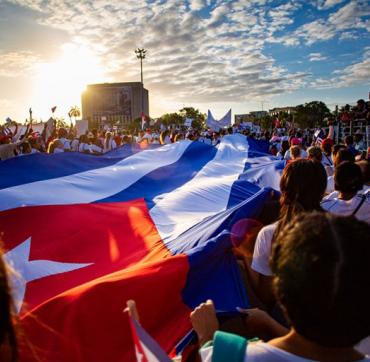Low-income countries have received just 0.2 per cent of all Covid vaccine jabs so far
especiales

Although more than 700 million vaccine doses have been administered globally, richer countries have received more than 87 per cent, and low-income countries just 0.2 per cent, according to the World Health Organisation (WHO).
Chief Tedros Adhanonom Ghebreyesus, speaking during the agency’s regular briefing from Geneva, described the “shocking imbalance” in the distribution of coronavirus vaccines between rich and poor countries.
He said the target of witnessing vaccination programmes under way in every country by Saturday would now be missed, with fairer distribution of Covid-19 vaccines still leaving much to be desired.
WHO is behind the Covax scheme – designed to get jabs to poorer nations – which intends to deliver more than two billion doses to people in 190 countries in less than a year.
In particular, it wants to ensure that 92 poorer countries will receive access to vaccines at the same time as wealthier countries.
Dr Tedros said: “There remains a shocking imbalance in the global distribution of vaccines.
“On average in high-income countries, almost one in four people has received a vaccine. In low-income countries, it’s one in more than 500. Let me repeat that: one in four versus one in 500.”
On average in high-income countries 1 in 4 people has received a #COVID19 vaccine. In low-income countries it’s 1 in 500+. Scarcity of supply is driving vaccine nationalism and vaccine diplomacy. This is a time for partnership, not patronage. We must accelerate #VaccinEquity now! pic.twitter.com/DZ9dSRo51C
— Tedros Adhanom Ghebreyesus (@DrTedros) April 9, 2021
The Covax scheme had been expected to distribute at least 100 million doses worldwide by the end of March, but only 38 million jabs have been delivered so far, due to shortages.
“We hope to be able to catch up during April and May,” Dr Tedros added.
He went on to condemn nations which have sought their own vaccine deals outside the Covax scheme.
Dr Tedros said: “Some countries and companies plan to do their own bilateral vaccine donations, bypassing Covax for their own political or commercial reasons.
“These bilateral arrangements run the risk of fanning the flames of vaccine inequity. Scarcity of supply is driving vaccine nationalism.”
Earlier this year, Dr Tedros warned that the world was facing a “catastrophic moral failure” over vaccine inequality.
He said a “me-first” approach would be self-defeating because it would encourage hoarding, and prolong the pandemic.
According to research by the Duke Global Health Innovation Center, high-income countries currently hold a confirmed 4.6 billion doses, while low-middle income nations hold 670 million.
Covax partners, who include Gavi, the vaccine alliance, are working on several options to scale up production to meet the goal of delivering two billion doses by the end of the year.
Dr Seth Berkley, the Chief Executive Officer at Gavi, highlighted the need for continued solidarity.
He said: “What we are now beginning to see are supply constraints, not just of vaccines, but also of the goods that go into making vaccines.”
Covax is also said to be developing cost-sharing mechanisms, so that low income countries can buy additional doses through Covax, funded by multilateral development banks.














Add new comment